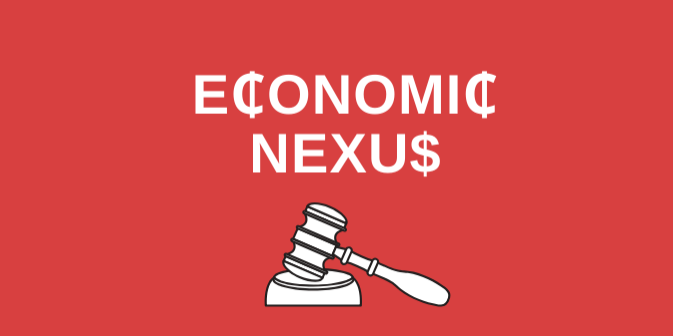The Supreme Court’s decision essentially overturning the physical presence standard for determining sales and use tax nexus was over a year and half ago, in June 2018. Since that time, the states and some local jurisdictions have worked at a fevered pace [insert your own comments here] to enact their own economic nexus laws. As of the date of this article, all but two states (MO and FL) have enacted some form of economic nexus and FL recently indicated that it is not going to address economic nexus this legislative session. It’s just a matter of time before all 46 states (including D.C.) that impose a sales/use tax have some form of economic nexus based on Wayfair. Right behind the bullet train that was the economic nexus movement came the marketplace facilitator laws. As of today, there are approximately 40 states that have imposed a marketplace facilitator law, leaving only six states which impose a sales and use tax but don’t yet have a marketplace facilitator law in place. Theoretically at least, the so-called playing field is more level now between remote sellers and in-state brick-and-mortar sellers, which was one of the goals all along. That, plus giving the states a much easier path at raising revenue instead of actually enforcing their own use tax regimes.
All of this boils down to one simple truth – there are SIGNIFICANTLY more companies collecting and remitting sales tax today than there were on June 20, 2018, the day before the Wayfair decision. However, as a result of selling a mere $100,001 into several of the various states, there is a tremendous administrative burden and cost that these companies now face. Among the questions these companies are asking:
- How do we know what tax rate to charge?
- The cost of tax calculation software vs the cost of modifying our own ERP and maintaining it;
- Are we going to outsource all of our sales and use tax compliance or hire someone (or more) to keep it in-house?
- How will we manage all the additional exemption certificates we receive?
You might have already asked some or all of these questions and based on the initial estimates you were provided, you’re struggling with how you’re going to pay for everything you truly need. Clarus Partners is here to help. Let us be your partner in navigating these issues and questions. We have some ideas that might be able to help mitigate the impact of these additional costs.
Outsource your compliance to Clarus Partners
We file approximately 50,000 sales and use tax returns annually for our clients. What does that mean for you? It means that we have the technology and processes to easily handle any compliance burden you might have. Furthermore, since we’re not a traditional public accounting firm (in particular, the Big 4 and other larger firms), we don’t have the independence issues that they do. That means that we can handle your payment/remittance process ourselves without having to involve a third party (i.e., AnyBill) and the additional fees that come with it. On top of that, we find that our baseline compliance services are less expensive than a lot of the competition and often include certain services (e.g., notice management) for which other providers will make an additional charge.
We can also serve as your entire indirect tax department. We have several clients whereby we act as their entire indirect tax function – including sales and use tax, property tax, and business licenses. We answer day-to-day questions, are involved in company-wide meetings and strategy discussions, handle all of the indirect tax audits, in addition to handling the periodic compliance. What we find is that the fully loaded FTE costs for hiring a qualified person to manage this entire process, including the compliance, is often far higher than the cost of turning it all over to Clarus Partners. Plus, you get the added benefit of all our years of multistate experience in this space.
Refund reviews
Another area where we work closely with our clients is reviewing their overall business activities to see if we can find and secure refunds of overpaid sales and use tax. The thought is that if we can find “free money” to help pay for ourselves and/or help our clients fund other more strategic objectives, then it’s a win-win for everyone. I recently had one client whereby we conducted a refund review and secured close to $200,000 of sales and use tax refunds, which was approximately 26 times their annual compliance fees, meaning we paid for ourselves for quite a while.
There are certain industries where refund reviews are commonplace (i.e., manufacturing). However, you don’t have to be a manufacturer in order to avail yourself of certain exemptions that are embedded in many state sales and use tax statutes. Sure, manufacturing-related exemptions are prevalent and we’ve had tremendous success in securing refunds of sales and use taxes related to our clients’ manufacturing activities. However, there are other exemptions and/or exclusions out there that can be just as lucrative. For example, a company with significant software and related maintenance contract spend can have just as much of a refund opportunity depending on the nature of the software and where it’s delivered and/or used. The same is true with myriad other types of similar sales and use tax “benefits,” from bad debts to utilities to construction contracts and a host of others. What’s great about these refund opportunities is that the lookback period is based on the statute of limitations in the respective states, which means that you can generally go back 3-4 years to look for and secure these refunds. All that is needed is for you to choose to work with someone who understands the ins and outs of these rules in each state in order to maximize your benefit. Let that choice be Clarus Partners.
Brian Hollingsworth, CPA
Partner, Clarus Partners Advisors LLC

